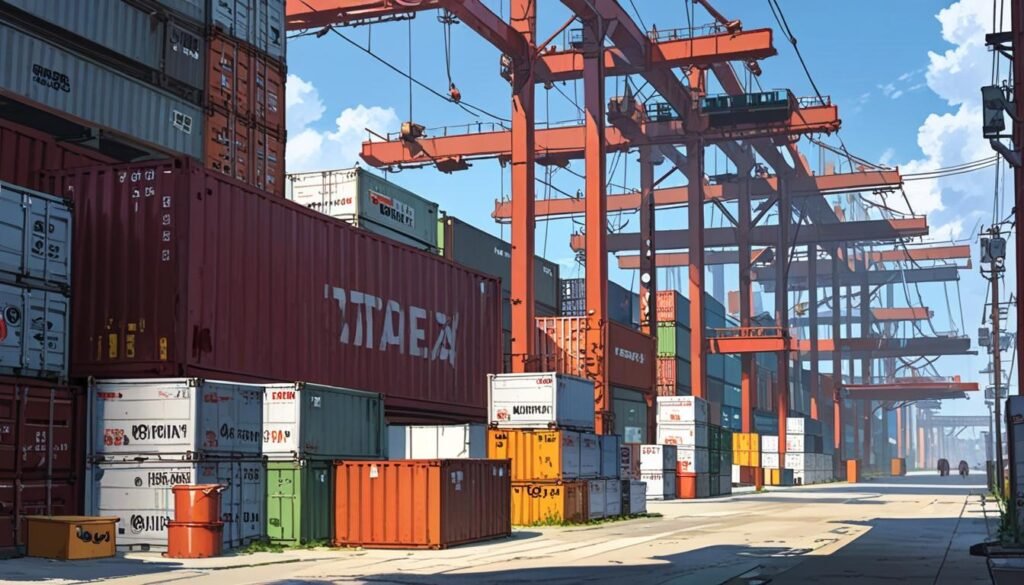**UK**: Franchise businesses face rising costs and supply disruptions due to 2025 tariffs on steel, aluminium and imports. With narrow profit margins, many struggle to adapt pricing, update legal documents, and diversify suppliers, risking closures and slower growth across sectors from retail to restaurants.
Franchise businesses across various sectors are facing significant challenges as the implementation of new tariffs in 2025 is reshaping their operational and financial landscapes. The recent tariffs, particularly targeting steel, aluminium, and imported goods, have introduced increased costs that are placing considerable pressure on franchise owners and franchisors alike.
Industries such as restaurants, retail, and automotive services—where franchisees often operate with narrow profit margins—are experiencing the brunt of these rising expenses. The Franchise King highlights that many franchisees lack the flexibility to independently adjust pricing, complicating efforts to manage these financial strains. This situation raises concerns about the potential for franchise closures or a slowdown in expansion within the sector if tariffs continue unabated.
In response to the escalating costs, some businesses have adopted the practice of adding tariff surcharges at the point of sale rather than raising base prices directly. CBS News reports that these additional fees are typically modest and are intended to clarify to customers that the price increases stem from government policy changes rather than company pricing decisions. Nonetheless, franchise leadership is urged to approach surcharging cautiously, as unclear communication regarding these fees could undermine consumer trust and damage brand reputation.
Beyond cost increases, supply chain disruptions have emerged as a notable consequence of the new tariff environment. Franchise.org notes that issues such as delays, shortages, and inconsistent product availability are affecting many businesses, especially those heavily dependent on imported materials. To counter these risks, franchisors are encouraged to diversify their supplier base, prioritise domestic sourcing where possible, and strengthen their relationships throughout the supply chain.
The implications of tariffs extend into legal compliance as well. Franchising.com emphasises the importance for franchisors to review and update their Franchise Disclosure Documents (FDDs) to reflect material changes in initial investments or operating costs brought on by tariffs. Failure to adequately disclose significant financial impacts can expose franchisors to legal liabilities and disputes with franchisees. Moreover, proactive communication about cost increases is recommended to sustain trust and avoid compliance pitfalls. Legal experts from Sotos LLP further advise franchisors to scrutinise supply agreements carefully to reduce vulnerability to unexpected cost fluctuations.
Not all franchises are equally affected by these tariff-related challenges. According to S&P Global, companies possessing strong pricing power, robust domestic supply chains, or diversified sourcing strategies are better equipped to manage the pressures. Luxury and high-end franchise brands may find it easier to transfer cost increases to consumers, while budget-focused brands, particularly within the restaurant industry, could face tighter operating margins as tariffs exacerbate existing cost pressures such as labour and interest rates.
In light of these developments, franchise leaders are advised to adopt several key strategies to navigate the evolving tariff landscape effectively. These include diversifying supplier networks, emphasising domestic sourcing, maintaining transparent communication with franchisees and customers about pricing changes, carefully assessing pricing methodologies—including the use of surcharges—and updating legal documentation to align with new financial conditions. Additionally, educating franchisees on supply chain management, cost control, and operational efficiency can help bolster resilience. Ongoing monitoring of government policies is also vital to remain compliant and adaptable.
The Rawls Group, a consultancy specialising in multi-unit franchising, notes the importance of long-term strategic planning to address the complexities introduced by tariffs and related challenges such as talent retention. Their services include succession planning, strategic growth advisories, and leadership development aimed at fostering resilience and sustainable success across franchise operations. They underscore that a comprehensive approach is essential to surmount operational risks and navigate leadership transitions effectively in a rapidly changing business environment.
As tariffs continue to reshape the franchising landscape in 2025, industry participants are adopting a range of tactics to safeguard profitability and ensure future growth potential amidst these new economic realities.
Source: Noah Wire Services





